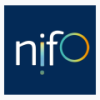The table below aims at gathering the administrative and governmental bodies of Switzerland, which are responsible for digital public administration policies and interoperability policies.

National
In January 2021, the Digital Transformation and ICT Steering took up the tasks of the former Federal IT Steering Unit, the Digital Switzerland Unit at the Federal Office of Communications and the GEVER Bund Unit at the Federal Chancellery. The administrative reorganisation aims to better integrate the business process and improve the use of data within the Federal Administration.
|
Ueli Maurer Head of the Federal Department of Finance and Chair of the Steering Committee for the implementation of the eGovernment Strategy
Source : www.efd.admin.ch
|
The Digital Public Services Switzerland Office supports the Digital Public Services Officer for the Confederation and Cantons and the DPSS committees in performing their tasks. The operational tasks of the Swiss Informatics Conference (SIK) are continued by the DPSS office. Existing staff and financial resources are be combined in a new joint organisation to ensure more effective use and accelerate progress in the digitisation of public services. The DPSS Office is to be administratively part of the General Secretariat of the FDF.
|
Daniel Markwalder Head of the Federal Chancellery’s Digital Transformation and ICT Steering
Source:www.bk.admin.ch/bk/en/home/digitale-transformation-ikt-lenkung.html |
|
Peppino Giarritta Officer for Public Services for the Confederation and cantons
Source : www.efd.admin.ch/efd/fr/home/le-dff/ |
The Swiss eGovernment Architecture Community (SEAC) brings together industry, government authorities and academia, and aims to set guidelines for next-generation IT architectures in the Swiss public sector. It is tasked with supporting, among other targets, the electronic handling of all communications between businesses and public bodies, as well as the electronic information exchange among public bodies.
The Federal Office of IT, Systems and Telecommunication (FOITT) is a key provider of IT and telecommunication services to the Swiss Federal Administration. Its main role is to ensure that the communications equipment and IT applications within the administration function optimally. As required by the IT Council, it also provides interdepartmental services to the entire Federal Administration, particularly in the areas of internet access and messaging, SAP, operational security and telecommunications.
Moreover, on 13 December 2019, the Federal Council published a message regarding the modernisation of the support processes of the Federal Administration and the systems of the Federal Department of Defence, Protection of Population and Sports. It proposed two programmes for implementing the modernisation process, and the harmonisation and standardisation of support processes within the Federal Administration.
eCH is an association that adopts and promotes eGovernment standards in Switzerland. In adopting such standards, it facilitates electronic cooperation among government bodies (G2G), and between government bodies and citizens (G2C), private businesses (G2B), organisations and the scientific community. Membership is comprised of federal entities, cantons, municipalities, organisations, universities, businesses and private individuals.
The parliamentary initiatives ePower for Switzerland and Parldigi aim to develop the potential of ICT in Switzerland. Through the collaboration of leading representatives from politics, the private sector, public administration and the scientific community, the objective is to engage politicians in the promotion of ICT and to raise public awareness of its significance.
eOperations Switzerland was founded on 20 June 2018. It aims to jointly develop and operate IT solutions for the eGovernment services of the Confederation, cantons and municipalities. In this way, costs can be reduced and the procurement of eGovernment solutions for businesses and the public is accelerated.
eOperations Switzerland provides consulting and project management services for its clients and launches calls for tenders on the market to respond to specific needs.
On 13 May 2020, the Federal Council decided to create a national Data Science Competence Centre. This centre will support the Federal Administration in solving complex tasks. It will promote the transfer of knowledge within the Confederation and encourage exchanges with the scientific community, research institutes and bodies responsible for practical application. In particular, this competence centre will contribute to producing transparent results while respecting data protection.
The interdepartmental working group on artificial intelligence (IDAG AI), which was established in 2018 as part of the updated Digital Switzerland strategy, was commissioned in 2019 by the Federal Council with the IDAG AI report which drew up a feasibility analysis. The Federal Council subsequently commissioned the Federal Department of Home Affairs (Federal Statistical Office, FSO) and the Federal Chancellery (Digital Transformation and ICT Steering Unit, DTI) to conduct a detailed analysis by mid-2021 and to establish the concrete design of this network. In August 2021, it was also decided that the CNAI unit should be operational by spring 2022.
The Conference of the Cantonal Governments (CCG) brings together the cantonal governments and encourages cooperation among the cantons in their fields of competence, as well as on federal matters relevant to the cantons. Its more general role is to coordinate the availability of relevant information to the cantons, such as the implementation of the eGovernment Strategy until late 2011. The CCG is regularly informed of such efforts through the cantonal representatives on the Steering Committee.
The Cantonal Directors’ Conference gathers the heads of the Chancelleries of the Confederation, the cantons and the Principality of Liechtenstein. It provides basic services to help its members fulfil their role in an increasingly complex environment. As most cantons assign responsibility for eGovernment to the State Chancellery, this body is of particular significance in eGovernment implementation in Switzerland.

